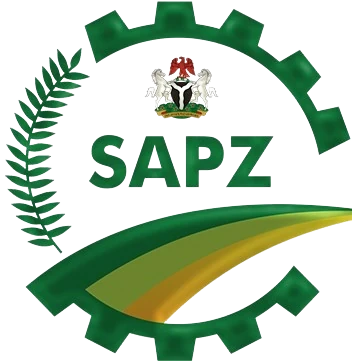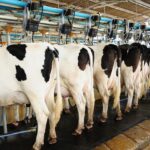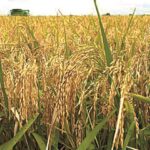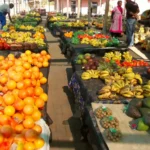1.0 BACKGROUND
The Federal Government of Nigeria has received a Facility from the African Development Bank (AfDB), International Fund for Agricultural Development (IFAD) and the Islamic Development Bank (IsDB) to finance the cost of the Special Agro-Industrial Processing Zones Program (SAPZ), and intends to apply part of the proceeds towards carrying out various consultancy services. The SAPZ Program is being implemented in the seven (7) States and the Federal Capital Territory (FCT). The States are Cross River, Imo, Kaduna, Kano, Kwara, Ogun and Oyo.
The overall development objective of the SAPZ programme is twofold: (1) Support the development of SAPZ in high food production areas to supply the domestic food market and create exportable surpluses; and (2) Capacitate smallholder farmers, small agro-processors and traders, and community-based service providers, including women and youth; to take advantage of the market demand created by the SAPZ to sustainably enhance their income, household food security and resilience to climate change.
The programme has four components namely:
➢Component 1: Infrastructure Development and Management for Agro-Industrial Hubs (AIHs). Under this AfDB-led component, the programme will support the FGN in developing and setting up SAPZs in high potential states.
➢Component 2: Agricultural Productivity, Production, Market Linkages and Value Addition in SAPZ Catchment Areas. Under this component, SAPZ’s objective is threefold: (i) support smallholder farmers and small operators to increase their productivity/production and capacity to add value to raw materials on a profitable and environmentally sustainable basis; and (ii) link them to the additional market outlets offered by the Agro-Industrial Hubs (AIHs), off-takers supplying the local and national market who operate in the target area, and small processors/traders supplying the local markets, including primary processors operating in the Agricultural Transformation Centres (ATCs); iii) enhance the resilience and adaptive capacity of smallholder farmers to climate change..
➢Component 3: Policy and Institutional Development Support. The objective of component 3 is to support the development of enabling policies, legislation, and regulation for SAPZs in Nigeria to create a conducive business environment for private sector investment and to address inefficiencies and market failures in agricultural value chains.
➢Component 4: Programme Coordination and Management. This component will ensure that the programme is efficiently and effectively managed to achieve expected results.
The Special Agro-Industrial Processing Zones (SAPZ) Programme in Nigeria seeks to transform the agricultural landscape by attracting private sector investments, fostering agro-industrial development, and creating jobs for a wide range of actors across the various agricultural commodity value chains. A critical component of achieving these objectives is de-risking agricultural investments and mobilizing greater private sector capital. Innovative financial products and a robust Digital Financial Flow Monitoring System (DFFMS) are essential tools to achieve this.
This TOR seeks to engage a consultant/firm to develop innovative financial products that de-risk these investments and a robust Digital Financial Flow Monitoring System (DFFMS) to enhance transparency, accountability, and investor confidence within the SAPZ ecosystem.
2.0 JUSTIFICATION FOR THE ASSIGNMENT
Despite significant potential, investment in Nigeria’s agricultural sector, particularly in large-scale agro-industrial processing, faces various risks perceived by financial institutions and private investors. These include, but are not limited to, production risks (e.g., climate change, pests), market risks (e.g., price volatility), operational risks, and policy/regulatory uncertainties. Traditional financial instruments often do not adequately address these specific risks, leading to a reluctance by private sector entities to commit substantial capital.
The SAPZ Programme seeks to mitigate these risks through strategic infrastructure development, an enabling environment, and targeted financial interventions. Developing innovative financial products tailored to the unique characteristics of the SAPZ ecosystem can significantly de-risk investments. Furthermore, a robust Digital Financial Flow Monitoring System (DFFMS) is crucial for transparency, accountability, tracking investment impact, and providing real-time data for decision-making by investors, financial institutions, and government agencies. This workshop will serve as a crucial platform to harness collective expertise and develop actionable strategies in these areas.
2.0 OBJECTIVES
The primary objectives of this consultancy are to:
I. De-risk SAPZ Investments: Design and develop innovative financial products and mechanisms to mitigate perceived risks (e.g., climate, market, operational, policy) for private sector investors in the SAPZ programme.
II. Attract Private Sector Capital: Create compelling financial instruments that incentivize greater private sector investment across SAPZ value chains.
III. Enhance Financial Transparency & Accountability: Develop and implement a Digital Financial Flow Monitoring System (DFFMS) to track, report, and analyze financial transactions and investments within the SAPZ ecosystem.
IV. Improve Data-Driven Decision Making: Provide real-time, accurate financial data to inform policy, investment, and operational decisions for SAPZ stakeholders.
3.0 SCOPE OF WORK
The selected consultant/firm will undertake the following key tasks:
3.1. Innovative Financial Products Development: this will involve:
I. Risk Assessment: Conduct a comprehensive analysis of financial and non-financial risks hindering private sector investment in Nigerian agriculture and specifically within SAPZs.
II. Product Design & Structuring:
a. Research and identify global best practices in innovative agricultural finance (e.g., blended finance, guarantees, index-based insurance, green bonds, results-based financing, digital credit, tokenization, warehouse receipts).
b. Develop a portfolio of tailored, market-driven financial products and mechanisms suitable for the Nigerian SAPZ context, including detailed product sheets, eligibility criteria, risk-sharing frameworks, and operational guidelines.
c. Focus on products that can be scaled and replicated across different SAPZs and value chains.
III. Stakeholder Engagement: Engage with potential private sector investors, commercial banks, development finance institutions (DFIs), insurance companies, and relevant government agencies to validate product designs and assess market appetite.
IV. Legal & Regulatory Analysis: Review the existing legal and regulatory framework to ensure the viability and enforceability of proposed financial products and recommend necessary adjustments.
V. Feasibility and Impact Assessment: Conduct a detailed feasibility study and impact assessment for each proposed product, including financial modeling, projected returns, and socio-economic benefits.
3.2. Digital Financial Flow Monitoring System (DFFMS) Development:
I. Needs Assessment: Define the functional and non-functional requirements for the DFFMS through consultations with SAPZ implementing agencies, private investors, farmers, and financial institutions.
II. System Architecture & Design: Develop a robust, scalable, and secure DFFMS architecture, including data input mechanisms, data storage, processing, analysis, and reporting functionalities.
III. Data Integration: Design solutions for integrating financial data from various sources within the SAPZ ecosystem (e.g., banks, microfinance institutions, farmer groups, processing units, government disbursements, private investments).
IV. Development & Customization: Develop and/or customize a digital platform/software for the DFFMS, incorporating user-friendly interfaces, dashboards, and reporting tools for different stakeholders.
V. Security & Compliance: Ensure the DFFMS adheres to national and international data privacy, security, and financial reporting standards.
VI. Testing & Deployment: Conduct rigorous testing (unit, integration, user acceptance testing) and facilitate the phased deployment of the DFFMS across selected SAPZs.
VII. Training & Capacity Building: Develop training materials and deliver comprehensive training to SAPZ program staff, financial institutions, and other relevant stakeholders on DFFMS operation, data entry, reporting, and analysis.
Kindly download the attached document for more detail please






Recent Comments